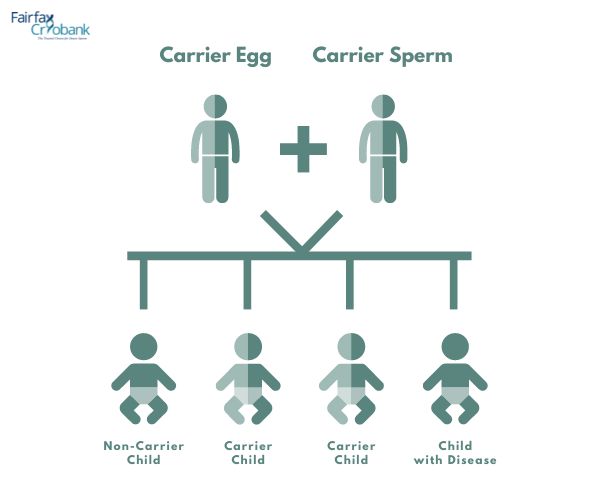Should I Consider Genetic “Carrier” Screening for Myself?
Read more about Genetic “Carrier” Screening from Kate Wisda, PRS Nurse Practitioner

Parents can have a baby with a genetic disease even though neither parent has it. Thus, the parents are healthy “carriers” for the disease, meaning that they don’t have the disease themselves but can have children with it. (CDC) In some cases, like Huntington’s Disease, only one parent needs to have the gene to pass it along.
Is Genetic Disease Preventable?
Today, the average genetic carrier screens tests for hundreds of genetic conditions with high detection rates (typically more than 90%). A negative result reduces your risk significantly for being a carrier for those conditions. Knowing your carrier status ahead of time can help you select the most suitable sperm donor for you. This will help you drastically reduce the risk of having a baby with a genetic disease listed on your testing panel.
What Diseases Are You Screening For?
You can pick to screen for a single disease, a dozen diseases (most common or specific to your individual risk) or an advanced panel with hundreds of genetic diseases. With a single vial of blood, genetic screenings can detect severe diseases that you might be a healthy carrier for that cause a poor quality of life, severe disability and/or a shortened life span. This includes diseases that cause lifelong and severe: chronic pain, breathing problems, physical and intellectual disabilities, etc.
Examples include: Sickle Cell Disease, Cystic Fibrosis, Tay Sachs and Spinal Muscular Atrophy

How Do I Know What Tests to Pick?
Ask your Medical Provider! They will assess your risk based on:
- Ethnicity
- Certain ethnic groups are particularly at risk of various recessive diseases
- Ex. African American- Sickle Cell Disease; Mediterranean- Thalassemia)
- Family history of genetic disease
- CDC Family Health History Checklist: Planning a Pregnancy
- Tell your medical provider if you have any family members with a genetic disease, chromosomal abnormality, developmental disability, birth defect, newborn screening disorder, or any other problem at birth, infancy or childhood
- Personal Pregnancy History
- Tell your provider if you’ve had a previous pregnancy or child affected by one of the conditions listed above, preterm birth, miscarriage, or stillbirth
Online Resources:
Your screening:
Overview of Natera’s Genetic Screening
Why I Chose to Have Genetic Testing.
I’m a Carrier for a Genetic Disease. Now what?
Fairfax Donor screening:
How can Fairfax help me find a suitable donor?
Webinar: Expanded Genetic Testing and How to Select your Sperm Donor







